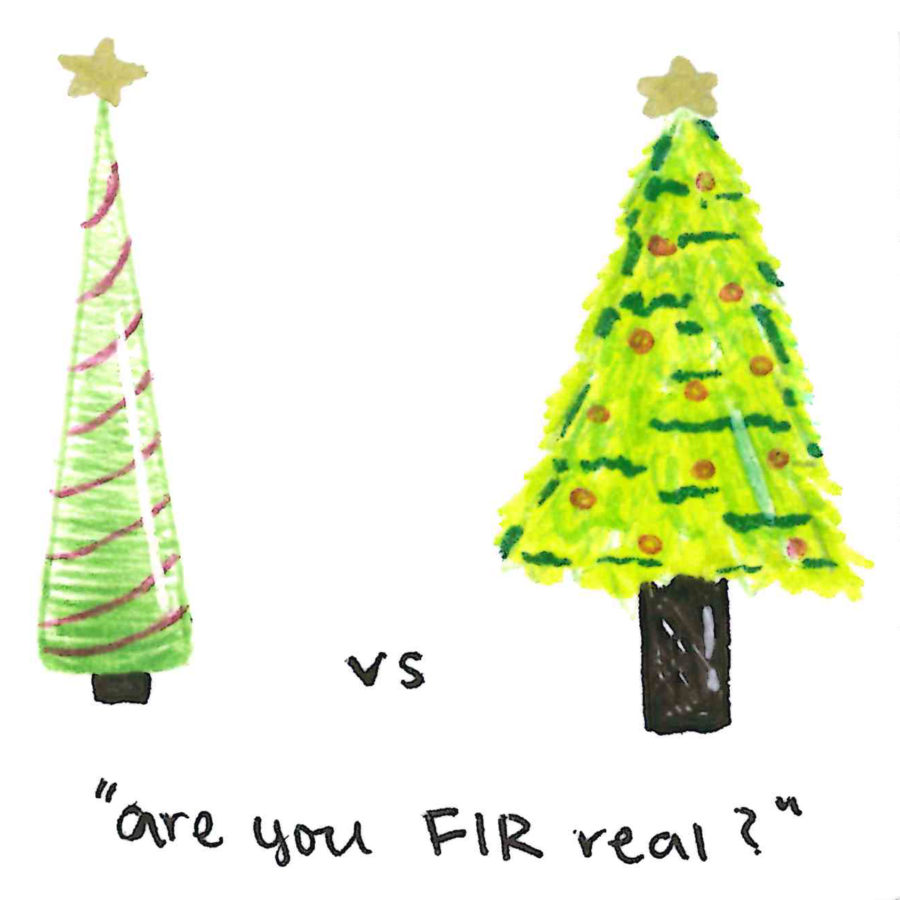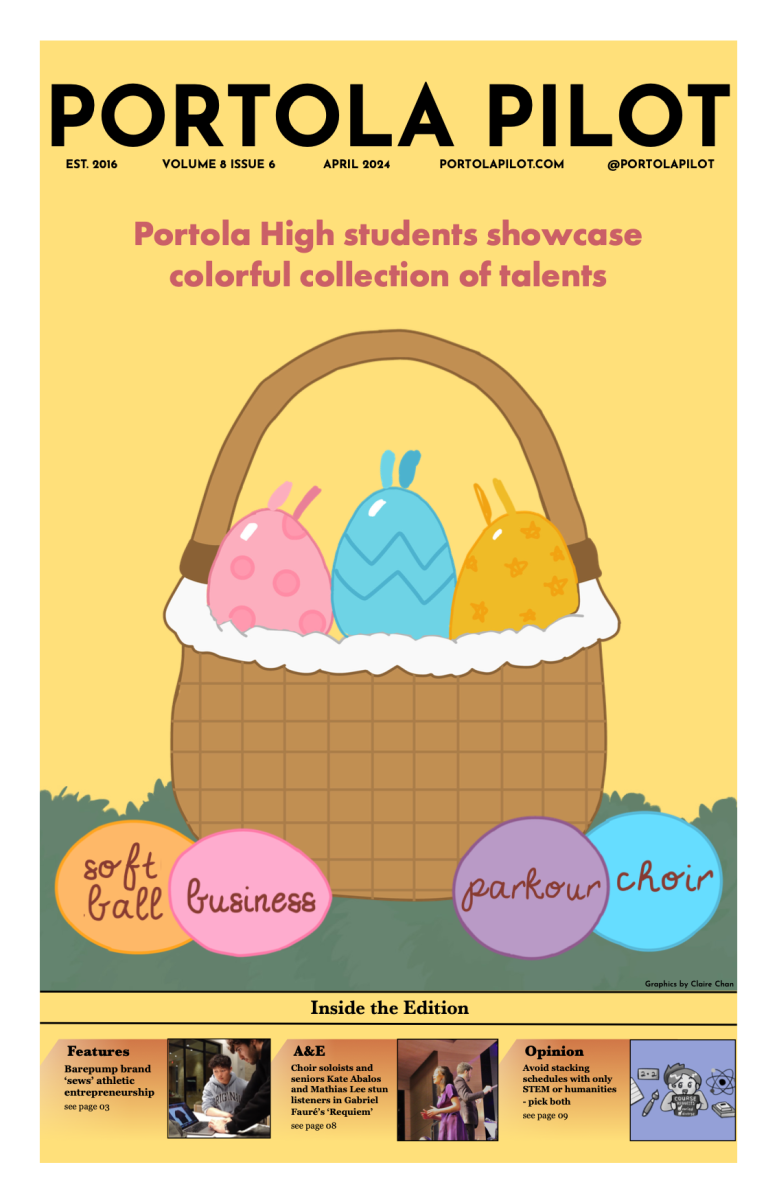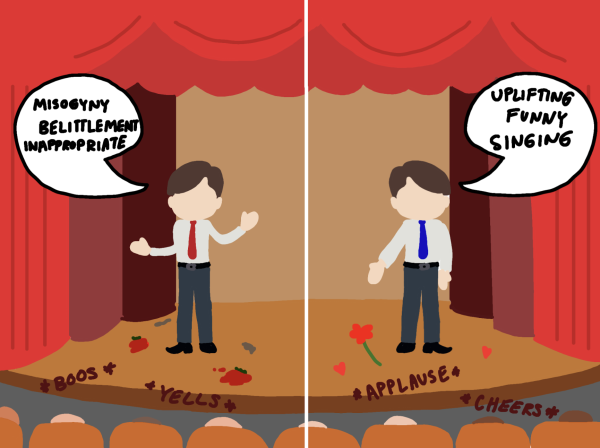Pines Over Plastic
December 25, 2017
As the holiday season approaches, many families are setting up their artificial Christmas trees that they have kept for years: the same plastic leaves, aluminum trunks and chemical odor. What they are missing out on is the genuine holiday cheer that comes with carefully choosing a real tree. Real Christmas trees dominate over their artificial counterparts due to their eco-friendliness and all-natural comfort it provides.
According to the National Christmas Tree Association, farm-grown trees benefit the environment by providing a habitat for wildlife and absorbing carbon dioxide from the atmosphere. Fake Christmas trees are mass-produced in factories, releasing chemicals and excessive amounts of carbon dioxide into the air. Additionally, real trees are recyclable and biodegradable, whereas plastic ones stay in landfills for centuries after the six to nine years of use.
Moreover, artificial trees impose severe health threats. The New York Times reports that most fake Christmas trees are made with Polyvinyl Chloride, or PVC, which contains carcinogenic lead. When children touch the plastic leaves, the toxic material can enter the body and lead to health risks. However, real trees pose no harm to humans; it only gives off a fresh, pleasant aroma.
A common misconception about real trees is that harvesting them is identical to chopping down trees for industrial use. In reality, spruces, firs and pines are farmed in designated rural areas, and replacement trees are planted in empty spots every year. Also, Christmas trees can be recycled into mulch or soil erosion barriers, not creating any harmful waste.
In 2015, American Christmas Tree Association reported that 81 percent of Christmas trees in American homes were synthetic; since then, farmers have been forced to plant fewer trees due to the decreased demand for real trees. As fewer and fewer people purchase authentic trees, the long-established tradition is losing popularity. As a result, the number of Christmas tree farms have decreased from 17000 to 3300 in the past ten years, according to USA Today.
Thus, purchasing a real Christmas tree this year is well-worth the small expenditure to benefit the planet, your family’s health and the continuation of the centuries-old tradition. Head out to the local tree lots to bring home a real tree to enjoy with your family.
















